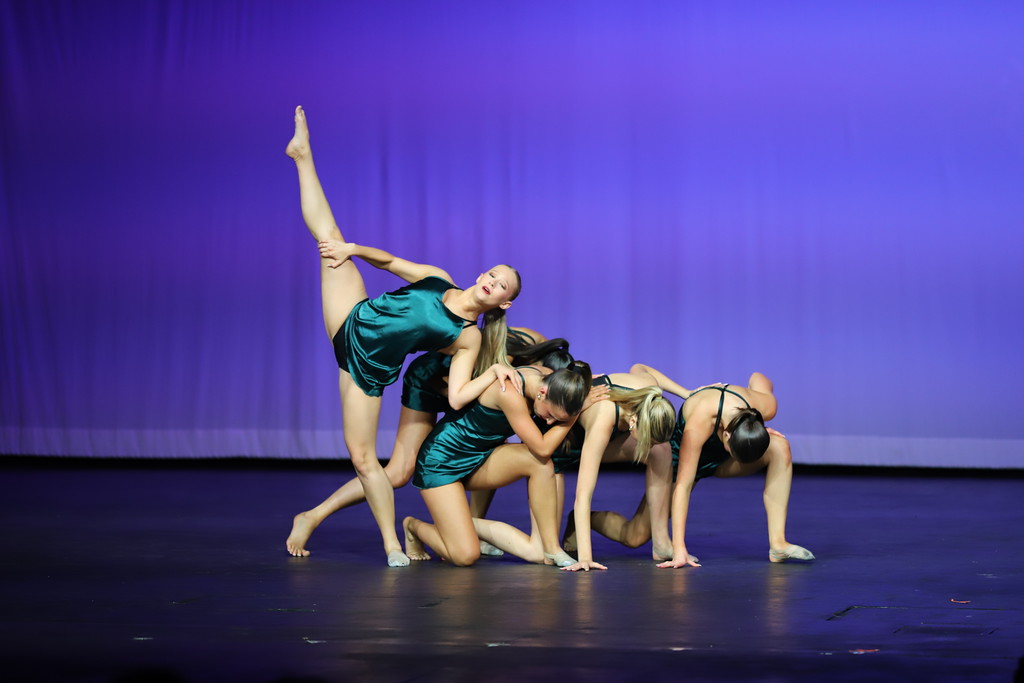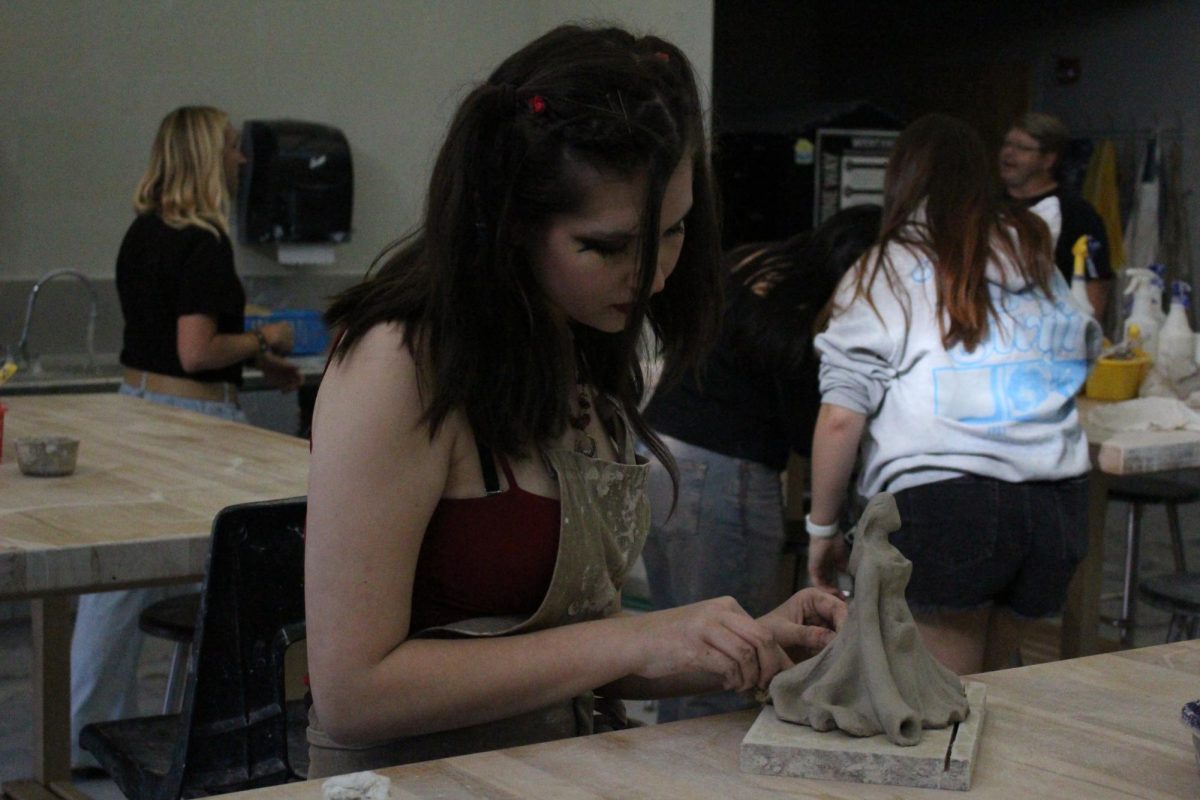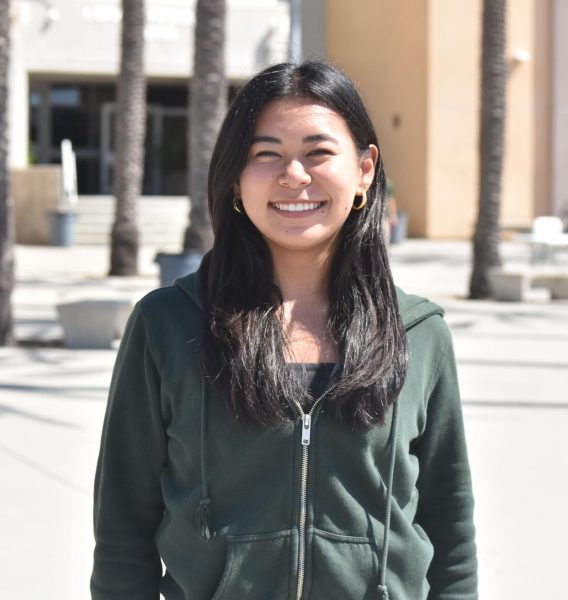After noticing that a lot of students struggle with their mental health, Robbie Gray (12) said he decided to do more to try to help. He attended a three-day course this summer on teen mental health first aid run by the AIM Youth Mental Health nonprofit, which was sponsored by the Parent Teacher Student Association Mental Wellness & Connections Committee.
The class was presented by Erin Langs, a certified instructor for teen and youth mental health first aid. Langs taught the class how to notice the signs of poor mental health and how to react to related crises. By taking the course, Gray said that he hopes to make a difference and gain the tools to help a friend.
“Some people would tell me about how they were very depressed and struggling with school or from different things that happened in their past,” Gray said. “And, I am only one 16-year-old boy who does not always know what to say when people talk about stuff like that other than to just comfort them. So I signed up for this hoping to learn more.”
Two years ago, Gray’s cousin lost his life to suicide related to mental health. Now, Gray has devoted himself to supporting his peers and contributing to a less competitive and draining culture at Westview in hopes of possibly saving a life.
“I had a cousin who lived in Oregon and was three weeks older than me who killed himself at the beginning of both of our sophomore years,” Gray said. “We were very close growing up and it was very painful for my family and me when he died. In some ways, that made me realize the importance of mental health more than I did before and feel more inclined to check in on friends and listen to them when they say that they have a problem.”
According to Gray, The generally high level of academic pressure at Westview has created a culture in which many students overwork themselves. Students often don’t allow themselves to take breaks for their mental health and frequently forget to check on their own and their friends’ wellbeing.
“I don’t think mental health at Westview is something that’s really prioritized very much,” Gray said. “I feel like Westview is mainly focused on getting certain accomplishments and successes and not so much on the people. I do feel like in a lot of classes, people just aren’t that inclined to check in on each other. And I don’t think they’re really checking in on themselves either, as I know I often don’t.”
Through the AIM course, Gray learned that in addition to face-to-face interactions, there are also opportunities to check on a friend anonymously through the school.
“You can talk to a counselor about a friend who you’re worried about and they’ll just have a check-in with them and you can remain completely anonymous,” Gray said. “It’s an extra step to take if someone is really struggling but you don’t think that they’ll help themselves.”
One in five students reportedly struggles with a mental health challenge, according to Langs.
“I think 20% is a falsely low percentage because those are mental challenges we’re aware of, and there are plenty that we’re not aware of,” Langs said. “We have a whole emerging generation coming out of high school, possibly going on to college and then joining the workforce. We need this next generation and the following generations to be mentally healthy. We need people paying attention to it and we need to be aware of it.”
Sydney Bates (12) also took the teen mental health first aid course. She had first noticed her peers having mental health challenges after the COVID-19 pandemic and Bates wanted to learn more about it to help her friends, knowing that students struggling with mental health challenges are more likely to reach out to a peer than seek professional help. A portion of the course was devoted to reacting to a mental health crisis, a situation where immediate action is necessary.
“I think high school is a stressful time so it’s good to [learn how to] help [a peer] recover, find the help they need, and take the [right] steps to get through a mental health crisis,” Bates said. “Overall, the class was [meant] to help students be more equipped when mental health crises do happen.”
Bates and Gray both said they left Langs’ class with the tools to make a difference. Langs said that both teens and adults need to discuss mental health as a real issue to reduce the stigma of shame and fear around it. According to Langs, many students feel that they cannot share their struggles unless they think everyone else would find it valid enough.
“It breaks my heart in a way because as an adult and standing in front of a class, if someone came up to me and said, ‘Could I talk to you about this concern or struggle?’ that in my mind is valid,” Langs said. “There’s nothing that’s not valid. There is some stigma to [mental health challenges] and I really want to change that because once we talk about things, we take away their power for negativity.”
On Sept. 24, Langs will hold a Real Talk at Westview, sponsored by the MWC Committee, to share the importance of mental health awareness with parents and adults. She said that adults need to be willing to listen to teens about mental health challenges and address the topic of suicide.
“I’m sure there are some parents and adults in positions working with youth where they like having that sort of dismissive attitude of [saying], ‘Suck it up, What are you complaining about?’” Langs said. “[I am trying to figure out] how do we communicate to you all that we do care, and we’re here and we want to listen and we want to support you. By getting into schools, by training parents and adults, we can get this message out and we can start improving this [attitude].”
Langs said that although uncomfortable at times, mental health challenges must be addressed by all demographics. It impacts all ages and awareness could make all the difference in saving someone’s life.
“It’s okay to be uncomfortable and talk about it,” Langs said. “It’s not innate for me to say, ‘Are you thinking about committing suicide and have you thought about how you’re going to do it?’ It’s just [about being] more aware and paying attention because 90% of the time there are signs. It takes being shown the skills, but they’re important and you may save a friend’s life some day.”
National Suicide Hotline, Call: 988
Youth Crisis Line, Call: 800-843-5200




